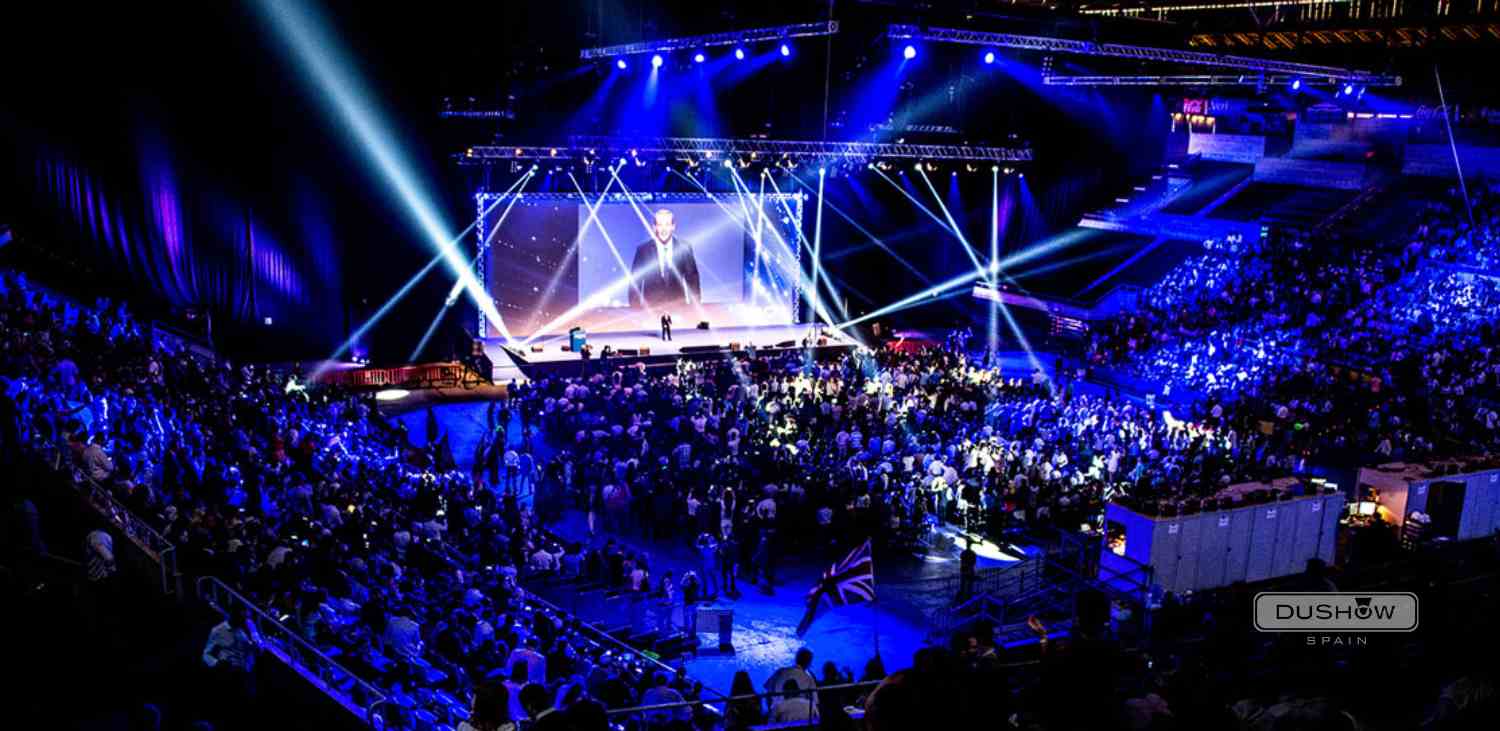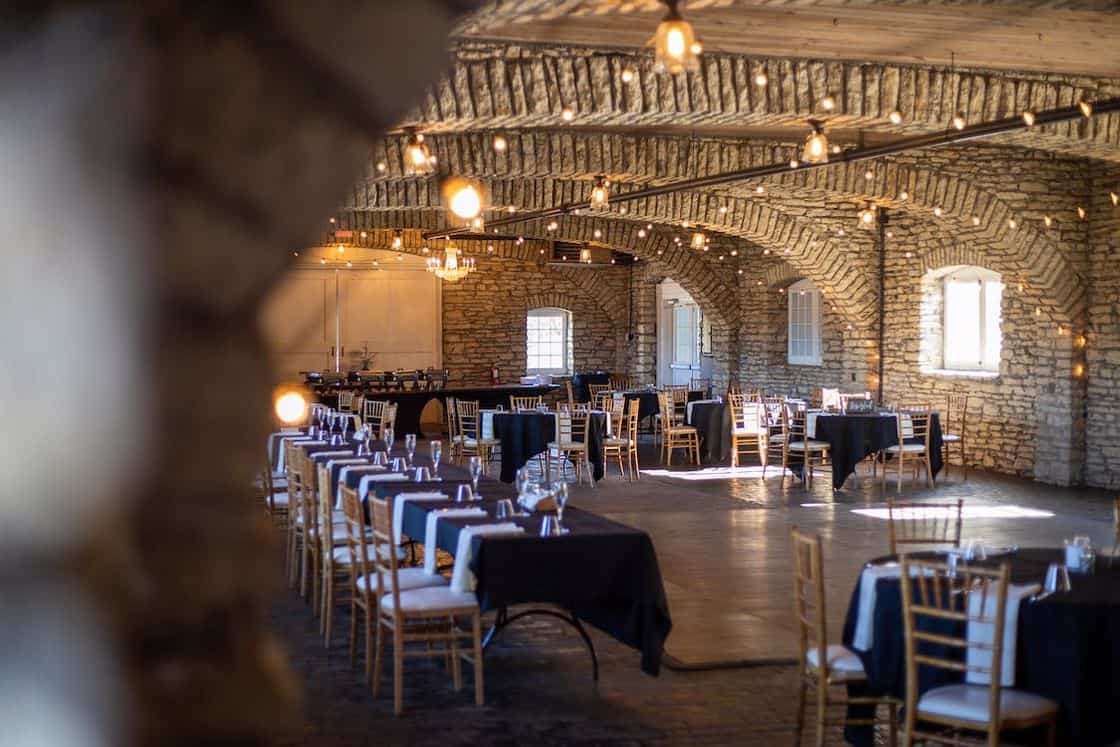How Event Production Works: A Comprehensive Look at the Process
Event production is a complex and organized procedure that requires careful preparation and execution. It begins with establishing clear goals and comprehending the target market. Each action, from budgeting to place option, plays a vital role in ensuring success. As the procedure unravels, various aspects should align perfectly. Yet, the subtleties of this detailed procedure usually go undetected. What are the vital phases that add to an unforgettable event?

The Preliminary Preparation Phase
When beginning on event production, mindful preparation is vital to ensure a successful end result. The first drawing board functions as the foundation for all subsequent efforts. During this phase, event producers should define the event's function and objectives clearly. Determining the target audience helps tailor the experience and messaging, assuring importance and engagement.Producers have to additionally take into consideration the event layout, whether it be in-person, virtual, or crossbreed, as this will certainly affect different logistical elements. Picking an ideal date and location is vital, as it affects ease of access and availability.Furthermore, putting together a reputable team is fundamental for dividing duties and simplifying communication. Developing a timeline with landmarks assurances all tasks are finished on schedule. This phase entails complete research study, including identifying possible difficulties and developing strategies to mitigate threats. Eventually, a well-structured first preparation phase establishes the tone for an effective event production journey.

Budgeting and Source Allocation
In event production, effective budgeting and resource appropriation are vital for success - event production charlotte. Establishing financial criteria sets the structure for all subsequent decisions, while source distribution approaches guarantee that every part of the event is properly supported. With each other, these aspects assist maintain control over expenses and optimize the use of readily available resources
Establishing Financial Parameters
Establishing economic parameters is important to the success of any type of event production, as it sets the structure for reliable budgeting and source appropriation. This procedure begins with specifying the total budget plan, which incorporates all aspects of the event, including place costs, wedding catering, and marketing. By identifying available funds, event coordinators can focus on expenditures and allot resources appropriately. Furthermore, it is essential to carry out comprehensive marketing research to expect prospective prices and identify funding resources, such as sponsorships or ticket sales. Establishing clear monetary parameters also aids in danger administration, enabling coordinators to reserve backup funds for unanticipated expenditures. Ultimately, a well-defined budget functions as a roadmap, assisting the event production group in the direction of attaining their goals while maintaining financial control.
Resource Circulation Approaches
Efficient resource distribution techniques are necessary for making best use of the effect of an event while adhering to budget constraints. Successful event production calls for a thorough strategy to budgeting and source allowance. Organizers need to prioritize necessary aspects such as location, event catering, and technology, making certain that funds are assigned to locations that improve guest experience. A comprehensive budget must detail anticipated expenses and recognize areas for possible expense financial savings, such as working out with vendors or checking out sponsorship opportunities. In addition, tracking expenditures throughout the planning procedure helps protect against overspending. By utilizing tactical resource circulation, event producers can supply an unforgettable experience while preserving monetary duty, eventually adding to the overall success of the event.
Place Selection and Logistics
Picking the appropriate location is important to the success of any event, as it establishes the stage for the overall experience. Location selection entails assessing numerous elements, consisting of capacity, availability, and place. Coordinators have to think about the target market and the nature of the event, making sure the location straightens with the event's goals.Logistics play a substantial duty in this process, entailing arrangements for seats, audiovisual equipment, and providing services. An appropriate venue should promote smooth flow for guests and staff, improving engagement.Additionally, assessing potential locations for features like parking, toilets, and emergency exits is necessary for safety and security and benefit. The timeline for protecting the place is also vital, as preferred areas might schedule quickly - event production charlotte. Consequently, thorough planning and timely implementation can ultimately contribute to a smooth event experience, making place option and logistics basic components of successful event production
Creative Concept Development
While the venue establishes the physical phase, innovative principle advancement shapes the event's identity and narrative. This process starts with recognizing the event's function and target audience, permitting event producers to formulate an engaging motif that reverberates with participants. Conceptualizing sessions typically include varied viewpoints, promoting innovative concepts that straighten with the event's goals.Once a style is established, aesthetic components such as color palettes, signs, and decor are made to improve the general environment. Narration methods may likewise be integrated to develop an appealing journey for individuals, guaranteeing a remarkable experience. Furthermore, considerations regarding entertainment, activities, and interactive parts are aligned with the selected idea, enhancing the style throughout the event.Ultimately, effective imaginative idea advancement warranties that every aspect of the event functions cohesively, leaving a long lasting impact on attendees and meeting the event's objectives. This fundamental work lays the foundation for subsequent planning and implementation stages.
Teaming up With Suppliers and Suppliers
Successful event production depends upon effective cooperation with vendors and vendors. Selecting trusted partners, working out agreements effectively, and guaranteeing prompt deliveries are essential action in this process. Each of these aspects adds greatly to the general success and smooth implementation of an occasion.
Choosing Reliable Allies
How can event planners ensure a seamless production experience? Picking reliable partners is vital in accomplishing this objective. Event coordinators have to perform extensive study to identify vendors and vendors with a proven track record of excellence. This includes inspecting recommendations, examining profiles, and reviewing consumer responses. Planners should prioritize partners who demonstrate expertise, timely communication, and a determination to collaborate. Structure check my blog strong relationships fosters trust and enables quick analytical during the event. Additionally, it is advantageous to select regional vendors that recognize the place and regional logistics. Eventually, an effective event pivots on the harmony between coordinators and their partners, ensuring that every facet of production runs smoothly and efficiently.
Bargaining Agreements Efficiently
Effective arrangement of contracts is an important action in the cooperation between event planners and their suppliers and providers. This procedure includes clear communication of expectations, deliverables, and timelines. Planners ought to conduct thorough study on market rates and market standards to establish a standard for settlements. It is crucial to create a collaborative ambience, motivating Check Out Your URL open discussion regarding terms, pricing, and prospective backups. Planners must additionally focus on comprehending the vendor's abilities and restrictions to align their requirements effectively. Flexibility can cause mutually helpful agreements, promoting lasting relationships. Crafting distinct contracts that consist of certain performance metrics can assist assure accountability, eventually bring about effective event execution and fulfillment for all events included.
Making Certain Prompt Distributions
Prompt distributions are important for the smooth execution of any kind of event, calling for persistent partnership in between organizers and their suppliers and suppliers. Effective communication is vital, as it helps establish clear assumptions concerning shipment timetables, amounts, and specific demands. Organizers typically produce thorough timelines to describe vital turning points, making certain all events continue to be straightened throughout the procedure. Normal check-ins with vendors can help identify potential delays early, enabling proactive solutions. In addition, building strong relationships with trusted vendors cultivates trust and responsibility, which can cause far better solution and prioritization. By focusing on these collective efforts, planners can reduce interruptions, therefore boosting the total performance of event production and making sure that all essential products and services get here as planned.
Marketing and Promotion Strategies
While organizing an event, the success of advertising and promotion approaches can greatly affect participation and engagement. Reliable methods often consist of a mix of digital advertising and marketing, conventional advertising, and grassroots outreach. Using social media platforms enables real-time interaction and targeted advertising and marketing, getting to specific demographics successfully. Email advertising and marketing projects can additionally involve potential guests with personalized material and reminders.Collaborations with influencers or industry leaders can likewise boost trustworthiness and broaden reach. Creating interesting material, such as video clips or blogs, helps to produce buzz and receive interest leading up to the event. In addition, leveraging early-bird price cuts and exclusive benefits can incentivize ticket purchases.Promoting with typical channels, such as posters or local media, stays relevant, specifically in community-focused occasions. A thorough technique that incorporates numerous techniques assurances optimum exposure and involvement, inevitably adding to the event's success and the development of an unforgettable experience for participants.
On-Site Implementation and Management
On-site execution and management are important elements that identify the general success of an event. Efficient sychronisation during the event guarantees that all elements line up with the planned navigate to this site program. Event managers oversee logistics, including vendor coordination, tools arrangement, and visitor solutions. Keeping an eye on timelines and addressing any unanticipated issues are essential for preserving a seamless experience.The staff plays a substantial duty, as skilled workers are liable for different jobs such as enrollment, details circulation, and technical support. Interaction amongst staff member is essential; it fosters a collective setting and makes it possible for fast resolution of challenges.Additionally, safety methods have to be complied with, safeguarding the health of all guests. Post-event assessments are also component of on-site administration, offering understandings for future enhancements. By focusing on these facets, event producers can develop remarkable experiences that meet or go beyond attendee expectations while attaining the event's goals.
Frequently Asked Concerns
How Do I Pick the Right Event Theme?
Choosing the appropriate event motif entails taking into consideration the target audience, event purpose, and location. Researching present trends and gathering input from stakeholders can additionally influence creative ideas that reverberate and create an unforgettable experience.

What Prevail Errors in Event Production?
Typical errors in event production usually include inadequate preparation, inadequate communication among employee, budget plan mismanagement, overlooking to consider the target market's requirements, and stopping working to carry out a detailed post-event examination for future enhancements.
How Can I Gauge Event Success?
To determine event success, one can analyze participant contentment, interaction degrees, budget plan adherence, and post-event responses. Key performance indicators, such as ticket sales and social media interactions, likewise offer beneficial understandings into general effectiveness.
What Should I Do if It Drizzles on the Event Day?
In the event of moisten the day, the organizer needs to execute backup plans, such as safeguarding camping tents or relocating activities inside your home. Communication with participants about adjustments is important to ensure a smooth experience regardless of weather condition challenges.
Just How Can I Ensure Guest Involvement Throughout the Event?

Comments on “How to enhance your event’s success with expert event production charlotte”